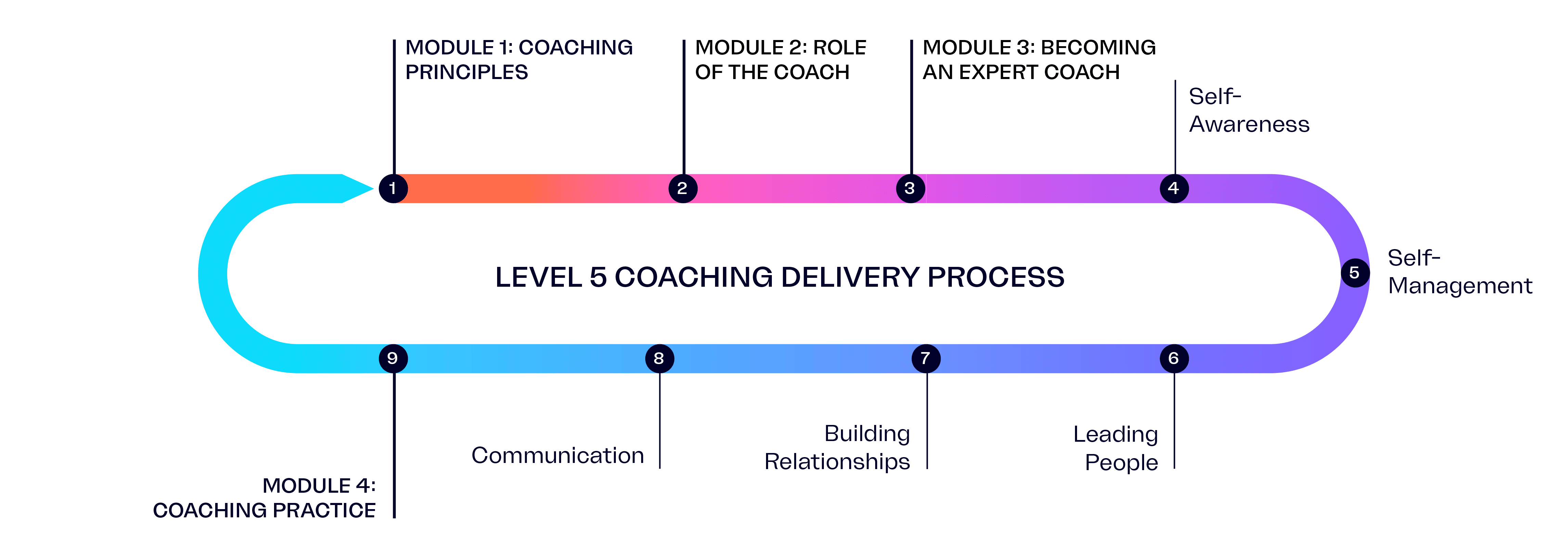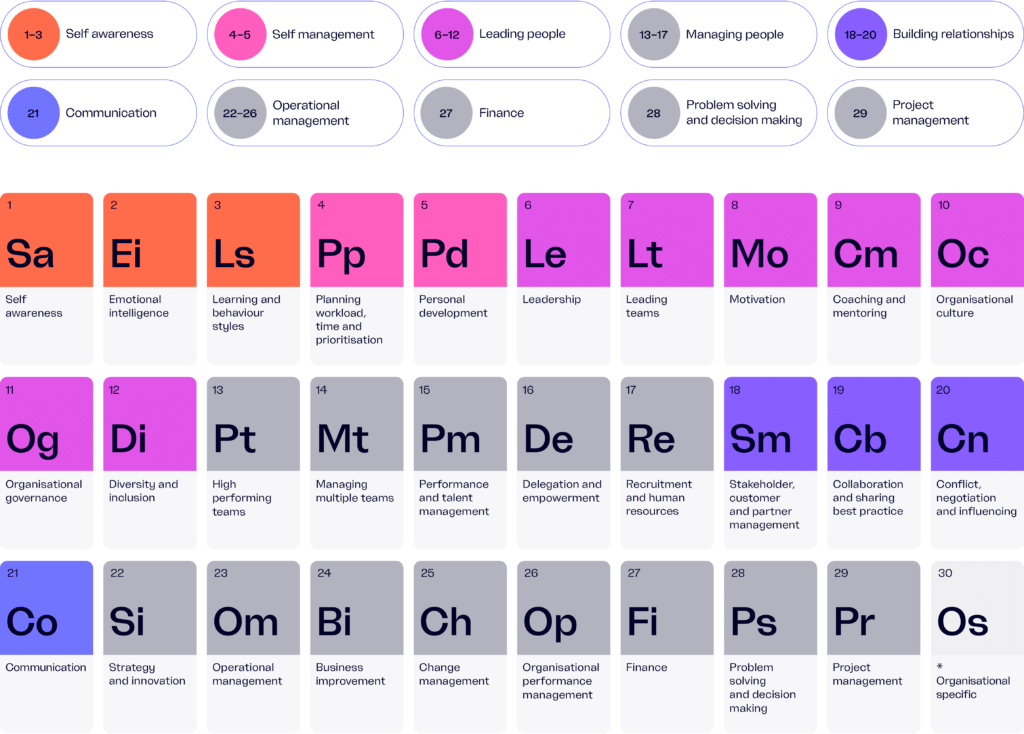
Level 5
Coaching Professional Apprenticeship

Overview
Who is it for?
This course is designed for an aspiring coach or someone looking for ways to develop existing coaching skills as a manager and leader.
What are the benefits?
- Apprenticeship qualification
- CMI Certificate in Professional Coaching Practice*
- CMI membership*
- Eligible for a TOTUM student card
- Functional skills qualification (if required)
*for participants who achieve a timely EPA with distinction
Entry requirements
- Lived in the UK/EU for at least 3 years
- Commitment to learning at least 4-6 hours per week (included in the 20% off-the-job training)
- Hold or be willing to complete level 2 functional skills in English and Mathematics
- Attain at least level 2 in a functional skills initial assessment
Find out more about our Coaching Apprenticeship. Register your interest to receive more information. Plus, get access to our downloadable flyer.
What does the programme cover?
We take participants through an iterative coaching development process.

Find out about our other apprenticeships
and how to use your levy.
Occupation duties
The 9 occupational duties that have been shaped by the latest standards for professional coaches and are designed to develop knowledge, skills and behaviours.
30 capabilities
Becoming an expert coach means having some core leadership and personal effectiveness skills. Participants explore core areas of our C30 framework, including self awareness and management, leadership, building relationships and communication.

Learner journey and programme features
The programme is structured into four key phases from selection and onboarding, to delivery and recognition.

What our apprentices and customers are saying…
Investment
(per person)
Levy Funded
Non-Levy (for SMEs – non-Levy payers)
UK organisations could send their employees on this course at limited cost. How? By leveraging the government’s Apprenticeship Levy.
The Apprenticeship Levy is paid by large UK employers with a pay bill of over £3 million. Currently, only 2% of employers pay the levy. Every employer who pays the levy can access their levy funds. Spending this on apprenticeship training. Upskilling their workforce.
The funding generated by this levy also funds apprenticeship training for other employers. SMEs, with a total annual pay bill of less than £3 million – pay just 5% of the cost of their apprenticeship training. The UK government pays the rest.
That means, as a SME, you could send your employees on Accipio’s new coaching course for just £250.00 (or 5% of the £5,000 course fee). Why not ask your employer to support your CPD?

